Editor’s note: Farm Equipment's all-new 2024 “Boots on the Ground” series gathers insights and best practices from highly successful 4-store Deere operation Alliance Tractor and covers the company’s successes and challenges throughout 2024 in all departments. The series details editors’ on-location visits at the dealership’s Vincennes store in southwest Indiana each quarter, covering each season and its unique opportunities and challenges. The series takes an intimate look at the dealership’s operations, shadowing key employees in their day-to-day tasks in addition to examining seasonal trends over the course of the year. Covering a smaller dealership competing with the 3 large-store Deere dealers surrounding it, the series catalogs the unique tools Alliance Tractor deploys to find success in its market relative to its larger competitors.
It’s almost done raining on a late February afternoon in Vincennes, Ind., where the team at 4-store Indiana and Illinois John Deere dealer Alliance Tractor’s Vincennes store prepares for planting season. They’re hoping for a dry spring, though they operate in an area around Vincennes well-known for rain and, as a city between 2 rivers, flooding. They know a wet spring means more planter breakdowns and remote service calls, so even as they hope for the best, they prepare for the worst.
Among the key customers of the Vincennes store is award-winning farmer and current No-Till Farmer Conservation Ag Operator Fellow Ray McCormick. An upcoming 4-part series from No-Till Farmer on McCormick unpacks his accomplishments in ag and touring his operation.
Farm Equipment’s “Boots on the Ground” series, meanwhile, uncovers the keys to Alliance Tractor’s success. The series returns you to the Vincennes store 3 more times throughout the year connecting during each season and reporting on store plans. During this first visit in late February, the store gears up for spring planting in each department, setting goals and fine-tuning the processes they expect to carry them to success in 2024.
The 2024 “Boots on the Ground” series is sponsored by:
Conservation Connection
Half the farmers in the area around its Vincennes store practice no-till farming. McCormick is one of those growers and known for his conservation advocacy.
Salesperson Ryan Seger practices no-till on his own farm and believes in its benefits, particularly in strengthening soil structure and reducing erosion.
Fast Facts
Founded: 2015 (Vincennes store opened as Vincennes Tractor in 1978)
Vincennes employees: 38
Ownership: Doug Schilling
Brands carried: J&M, Landoll, Kuhn Krause, Unverferth, Yetter, Martin-Till, Precision Planting, Honda Power Equipment, Stihl, Thunder Creek Equipment
Vincennes management team: Jason Boyles, store manager; Roger Roberson, service manager; Jamie McNeely, parts manager
“Over time, we’ve seen a significant improvement in the tilth of our soil,” he says. “We have some very tight clay soil and over the years of working it, it seemed like we lost the structure. Since going to no-till, the structure has really come back.
“We had many fields, especially around our home farm, where it seemed every year the county needed to come out and clean our ditches. And since we’ve gone to no-till, they rarely ever have to clean out our ditches anymore.”
Seger can speak at length about the various benefits he sees from no-tilling and the different conservation methods they’ve used on their farm.
Like many no-tillers, he searches for other practices to improve his operation and makes a point of communicating with other growers on their own successes and challenges. He laughs while mentioning how he learned one lesson from another farmer about the potential odor-based problems that can come with planting tillage radishes as cover crops.
“We’ve talked to other farmers about being cautious on where you plant those because a neighbor planted them on the edge of town,” he says. “In March when the radishes started decomposing, the smell from that was extreme.”
Relationships Sell
Seger credits this connection and exchange of information with customers — specifically on conservation — as part of his success in sales. He says the better he can understand a customer’s operation, the easier he can get that farmer the right piece of equipment for their needs.
“It’s nice when you have firsthand knowledge to share,” he says. “One of the things I really like about the farming industry is there’s a lot of information flowing back and forth with the majority of customers.
“It’s nice to talk to Ray about what he is doing on his farm that he’s found to be successful, and then we’ll talk about some of the things we’ve tried as well. If you’re working with a customer on a planter and know it’s no-till, there are different things we may talk about from our experience and make recommendations from what I hear from other customers or what we’ve seen on our farm.”
This “no-till connection” functions as a two-way street. McCormick knew Seger before his days working at the dealership and their no-till connection has only improved that relationship.
McCormick talks about how important his relationship with the dealership is, particularly with Seger.
“With Deere dealers on all sides, Alliance Tractor hangs its hat on parts as a 4-store operation…”
“We’ve bought a bunch of machinery here and worked with him, and there’s nobody more honest,” says McCormick. “He’s a no-tiller and cover cropper, which makes me really like him. But he’s a good person.”
McCormick’s working relationship with the Vincennes store, located 4 miles from his home, goes back many years to its days as Vincennes Tractor, a single-store dealership founded in 1978 and recipient of Farm Equipment’s 2008 Dealership of the Year in the small-store category.
“The manager here, Jason Boyles, is a great person,” he says, adding Boyles had just shown him some pictures of his son duck hunting. “I’ve got a long relationship with the service department. All of that is important when you’re working with a dealership. When you’re down out in the field and you need help, they’re going to do whatever they can to get you up and going again.”
Boyles says the relationships transcend the business. Customers aren’t just buying from Alliance Tractor — they’re buying from Ryan, Jim and Tyler too. He extends that emphasis to the parts counter as well.
“Our parts folks are salespeople as well,” says Boyles. “They’re trusted partners with the guys who come into the store. Ryan and I deal with a certain group of customers, but those guys at the counter deal with all of our customers. Product knowledge is huge as well, but those guys at the counter build relationships with our ag customers just like the sales guys.”
Keep ‘Em Coming Back with Parts
The Vincennes store recently converted a combine storage shed into a parts warehouse. Parts Manager Jamie McNeely says the extra space allows him to keep larger parts in greater “on-hand” quantities.
“Parts are getting bigger, so we needed a bigger space,” he says. “We needed more square footage to store bigger parts and quantities of those bigger parts. We weren’t able to keep several of the larger items on hand and now we can. Before it was 1 or 2, and now I can keep 10. And for something like filters, instead of buying 10 to put on a shelf, I can buy 50. I get better purchasing power with that.”
McNeely sees only more demand for storage space as the parts business continues to grow. Although only 4 stores, Alliance Tractor has customers from 5 states coming to them for parts.
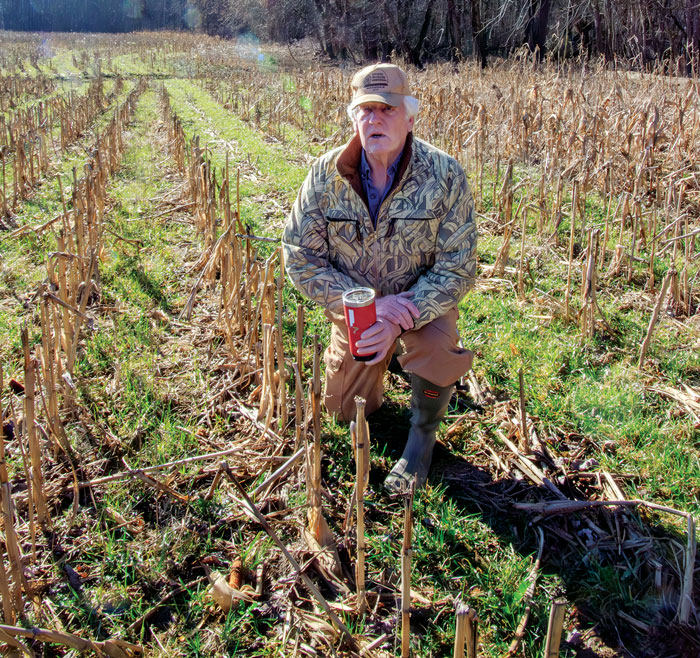
Award-winning farmer Ray McCormick’s relationship with Alliance Tractor’s Vincennes, Ind., store goes back decades. Michaela Paukner
Boyles credits the dealership’s attitude toward parts as part of its success while nestled among larger Deere dealers.
With John Deere dealers Hutson Inc. (Farm Equipment’s 2023 Dealership of the Year), Sloan Implement and Sydenstricker Nobbe Partners (Farm Equipment’s 2021 Dealership of the Year) on all sides, Alliance Tractor hangs its hat on parts as a 4-store operation.
“One of the biggest things that’s kept customers and gained customers is we have a lot of parts on hand,” Boyles says. “When other Deere dealers don’t stock a certain part, they would call us, and we would tend to have it. Well, they do that 3-4 times, and they don’t call the other guy anymore. And that turns into sales and turns into service business. That’s probably been our best thing to hold our own for sure.”
Having a farming family — the Schillings — as owners contributes to the dealership’s decision to keep more parts on-hand, Seger says.
“It’s nice having an owner with an ag background who really understands what’s required to help our customers,” says Seger. “Along those lines, Doug also focuses on service, making sure we have really competent technicians.
“Doug is proactive on is stocking parts. Obviously, there’s a cost to warehousing parts, but certainly there’s a big investment too for a customer who comes in and buys a combine. They’re going to expect us to keep a lot of the normal wear items in there.
“It’s not going to be acceptable if they come in, and we don’t stock a bearing or a chain or a belt that’s commonly used. They just made a major investment in this piece of equipment, and then they’re supposed to be down a day or two for us to get the parts in? Obviously we can’t keep every part, but we hope more often than not, they’re able to leave with the part that they need.”
Keeping the right parts on hand requires McNeely to keep a close eye on how and when they order parts. Often, it means monitoring how Deere’s parts ordering system tracks the store’s inventory and overriding certain parameters when it doesn’t fit how McNeely and others manage Alliance Tractor’s inventory levels.
Ray McCormick, No-Till Farmer Conservation Ag Operator Fellow
No-Till Farmer has selected Ray McCormick of Vincennes, Ind., as its 2024 Conservation Ag Operator Fellow. Launched in 2022 to mark the start of No-Till Farmer’s second 50 years, the annual Conservation Ag Operator Fellowship program visits a leading no-till farmer throughout the year and shares the real-time decision-making and solutions needed to make no-till and conservation ag practices work in real-world conditions. To read more about McCormick — including how survived a near-death experience while doing tornado clean up — visit No-TillFarmer.com/McCormick
“John Deere has its own system, where we put in how many we want to stock as far as a maximum and a minimum, and then the program just makes sure that we keep those in stock,” says McNeely. “Say we want to keep 4 total of a part, but no less than 2. Once we get to 2, it’ll send 2. It automatically orders it for us.
“There are times where I’ll look at a part and say, ‘I’ve sold a bunch of this, and the system hasn’t stocked it for me yet.’ I might be looking at trends over the last 3 months where the system only looks at a 30-day span. We’ll go in and force it to stock it for us at that point. We have to constantly be watching.”
The trends that dictate how the store orders can change every year, says McNeely. It can change in the blink of an eye once planters start hitting the fields and those first breakdowns come rolling in. That’s made easier, however, through his strong relationships with other Deere dealers.
“We have a great network with dealers to our south,” he says. “There are dealerships that we communicate with that I can get early trends sometimes. We work hard with that, too, to make sure that in and outside of our area, we’re in good standing with everybody so, if we need something, we can help each other out.”
McNeely has a particularly helpful contact in Texas, with whom he talks before each season to exchange information and help each other identify trends, such as which planter parts break the most and need the most replacing. What’s happening in Texas doesn’t always translate to Vincennes and the area’s conditions, but it does give him a general direction and sense of early problems on new models.
McNeely smiles when asked about his projections for 2024. He doesn’t see a lot of change compared to last year, though parts revenue could slightly surpass 2023 levels.
“We’re definitely not going to go down,” says McNeely. “Farmers around here aren’t shy about spending. They got to keep equipment up and going. I’ve been up here 4 years now, and it just keeps going up and up every day.”
Hoping for a Dry Spring
The area surrounding the Vincennes store frequently floods, something McCormick mentions repeatedly. The city runs between the Wabash and White Rivers, which fill with rain from the Northern part of the state. People in the area treat flooding fields — and the accompanying crop loss — as an inevitable reality in conversation.
The high potential for flooding in the area can put a unique strain on the parts department, according to Boyles.
“It can change their harvesting practices and planting too,” Boyles says. “We can get flooded fields even when it doesn’t rain a lot in our area. If Northern Indiana gets a lot of rain, both our rivers will flood down this way.




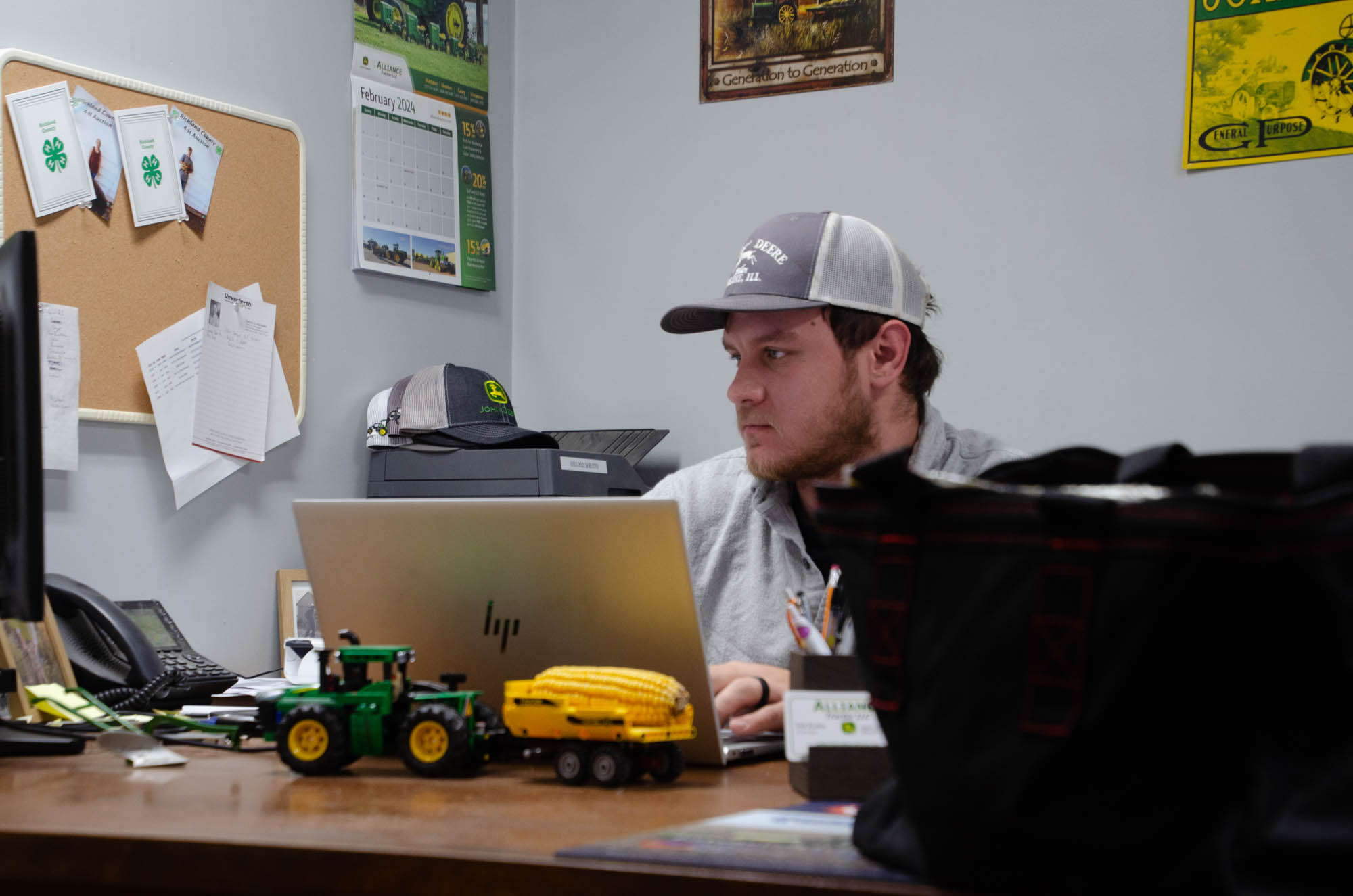
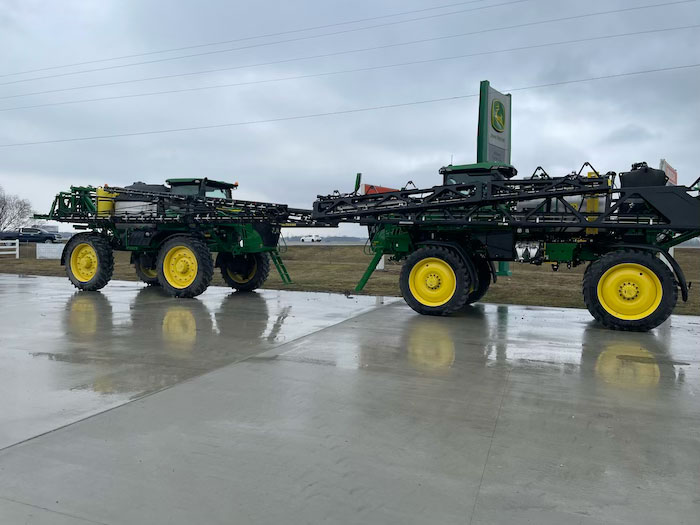
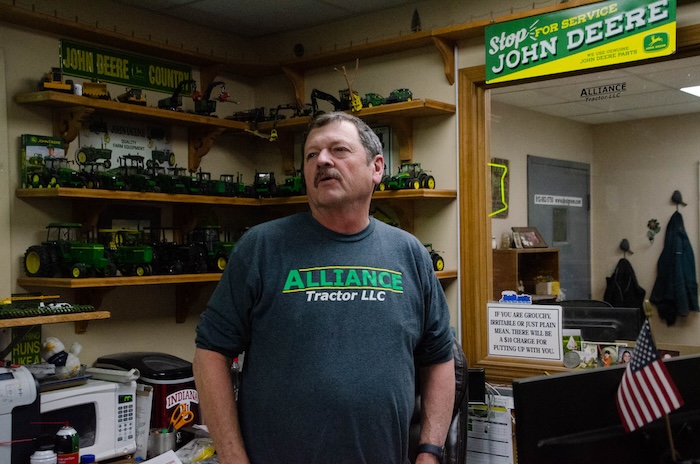
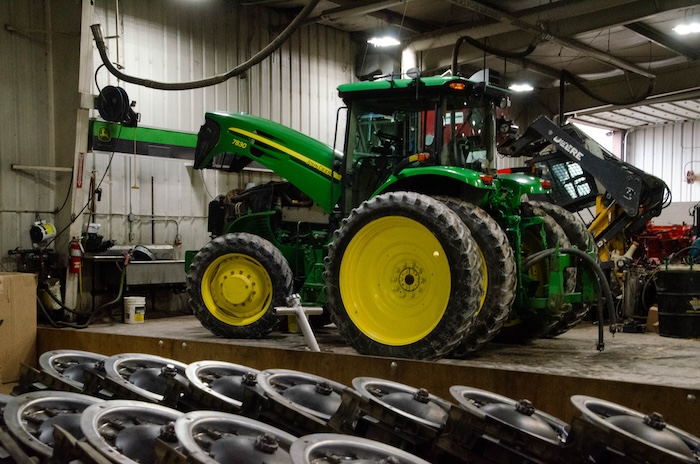
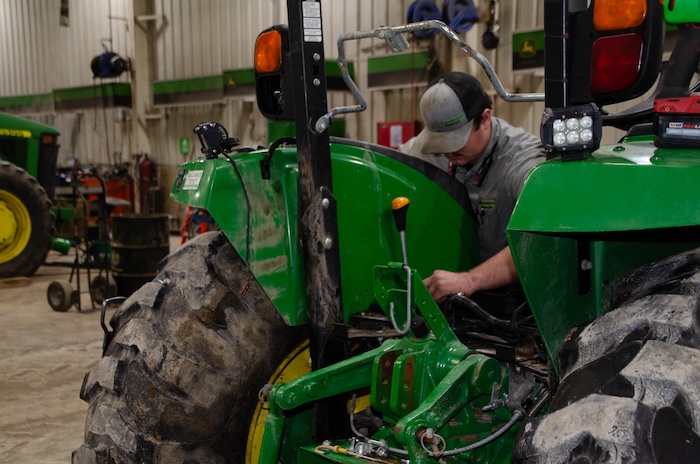
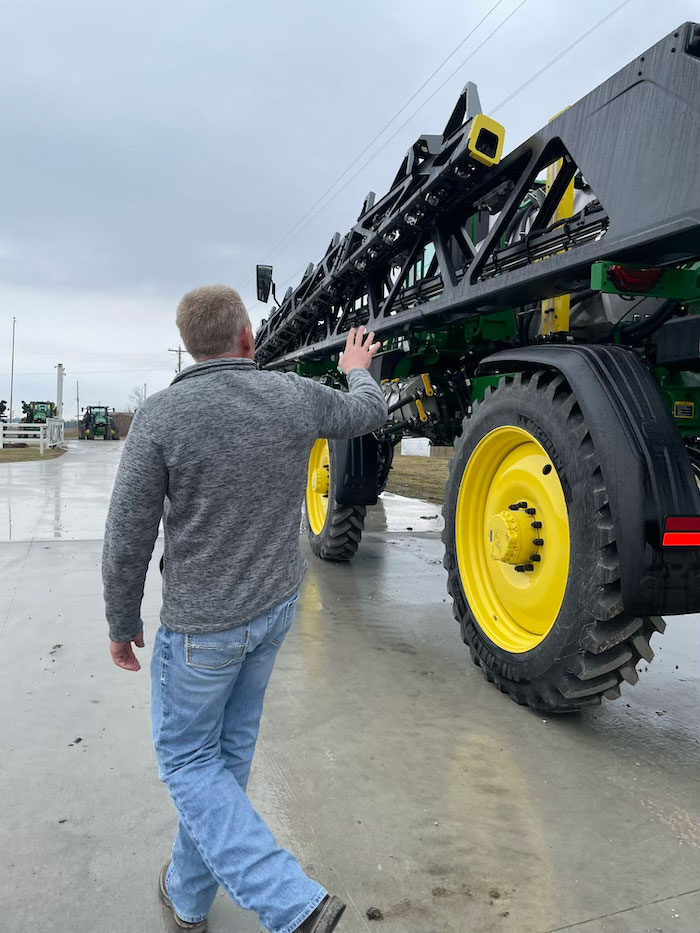
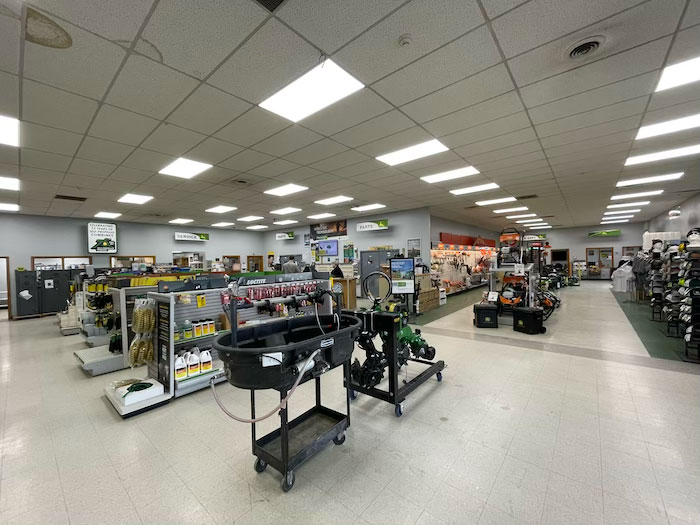
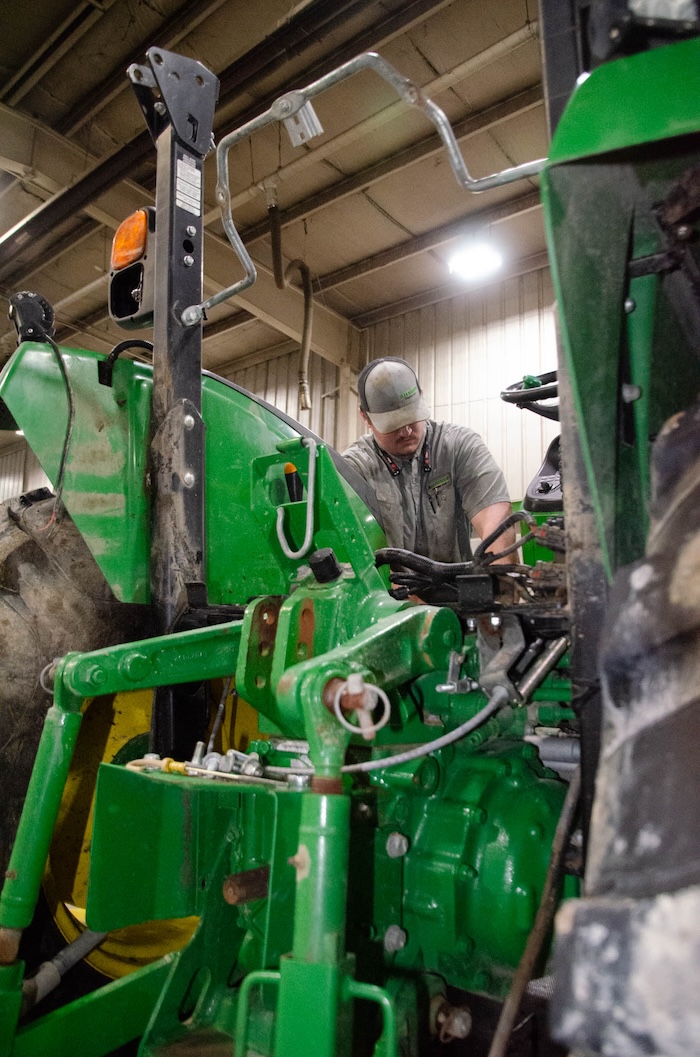
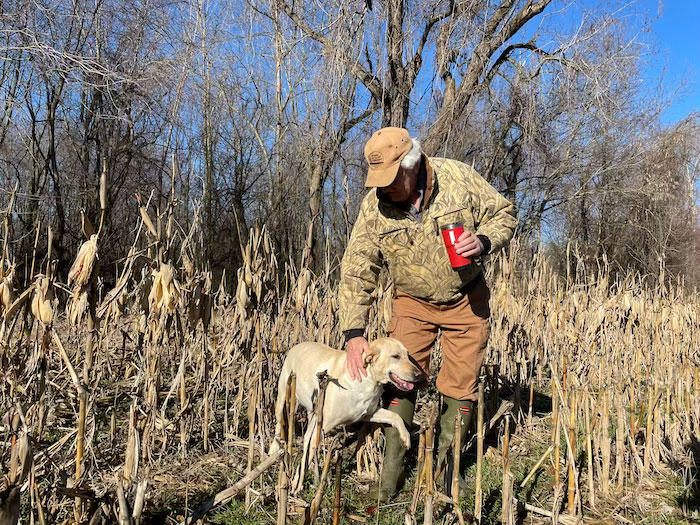
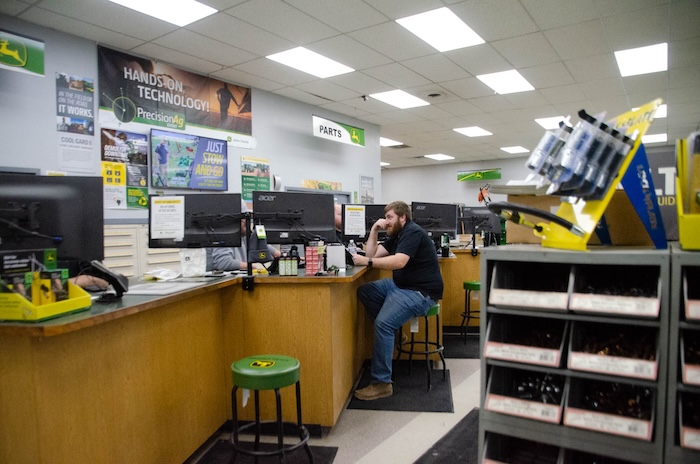
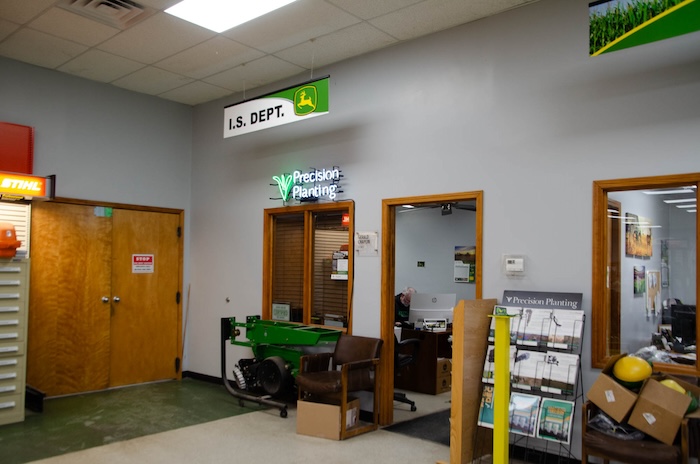
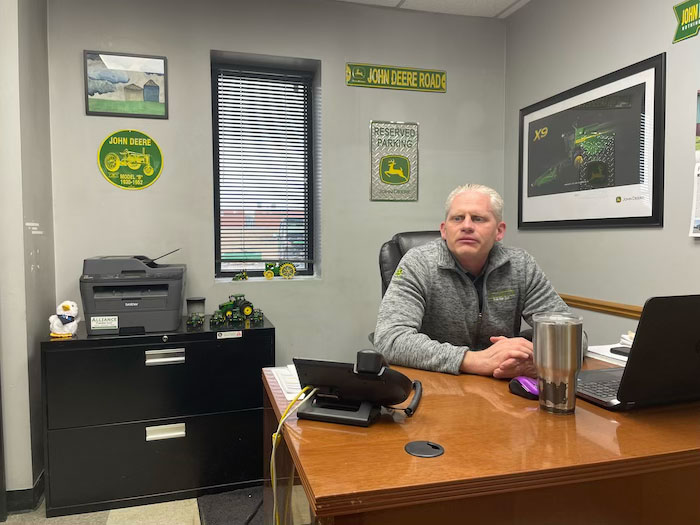
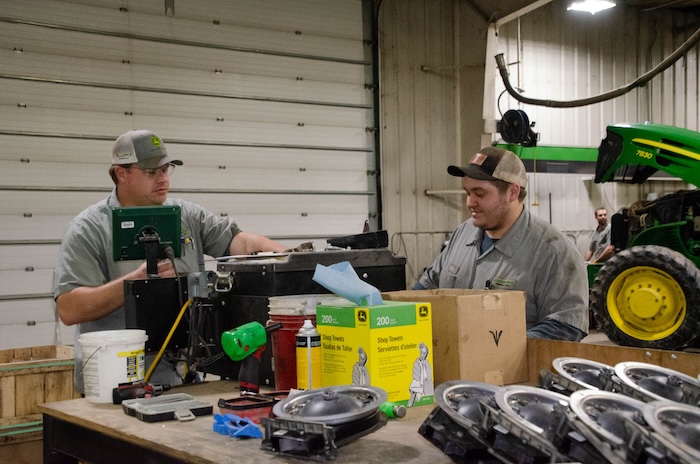
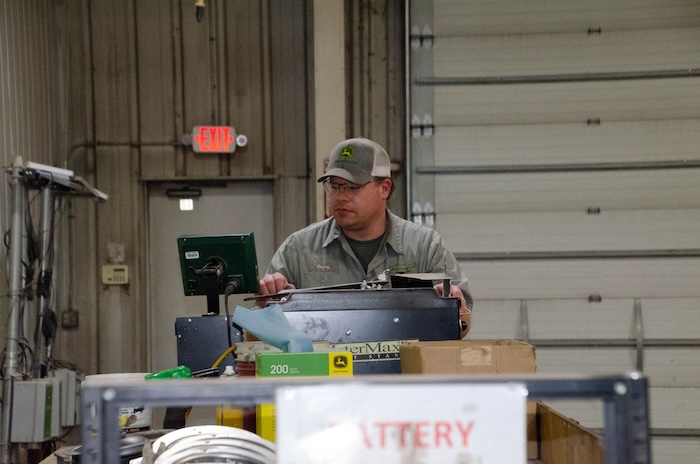
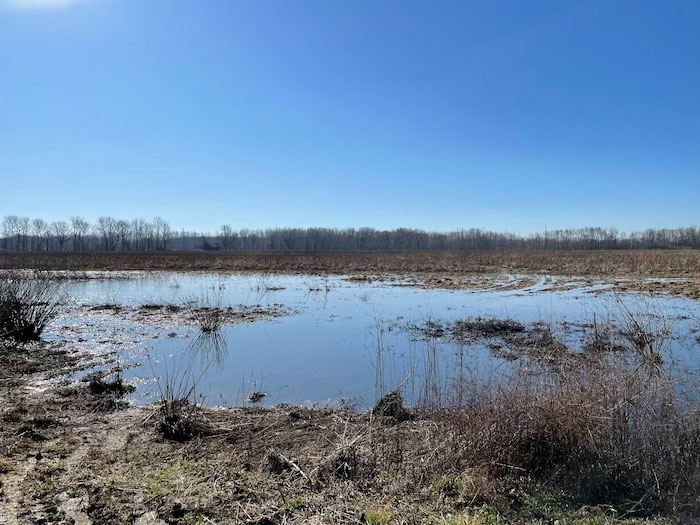
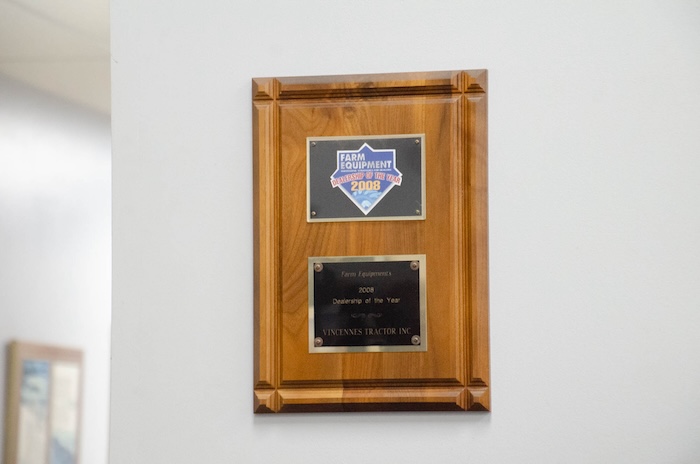
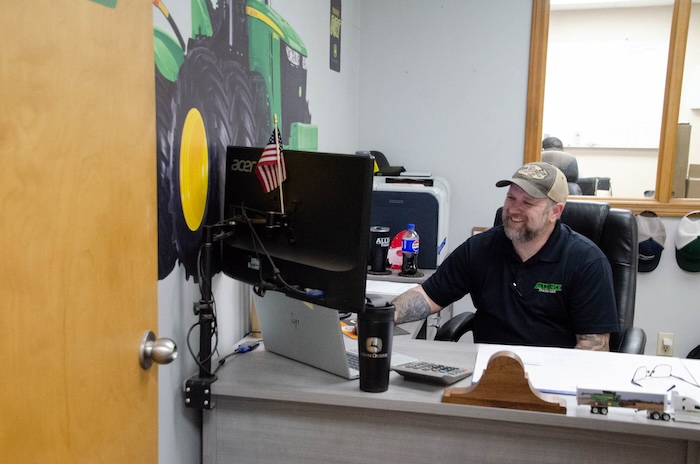
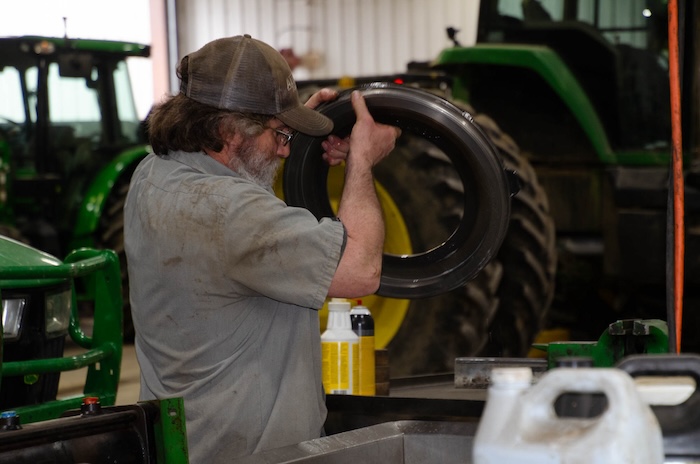
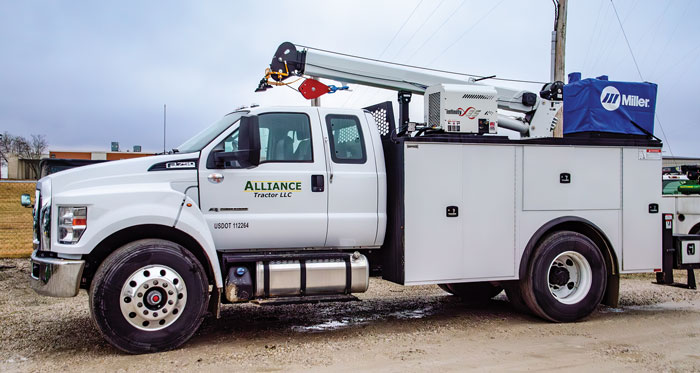
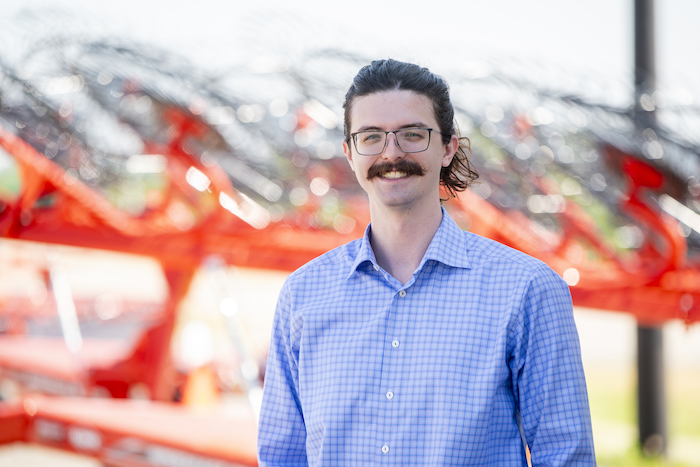

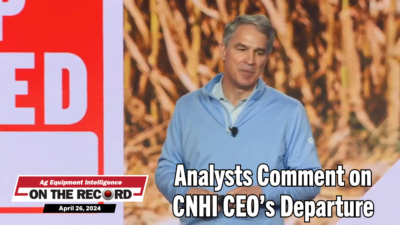



Post a comment
Report Abusive Comment